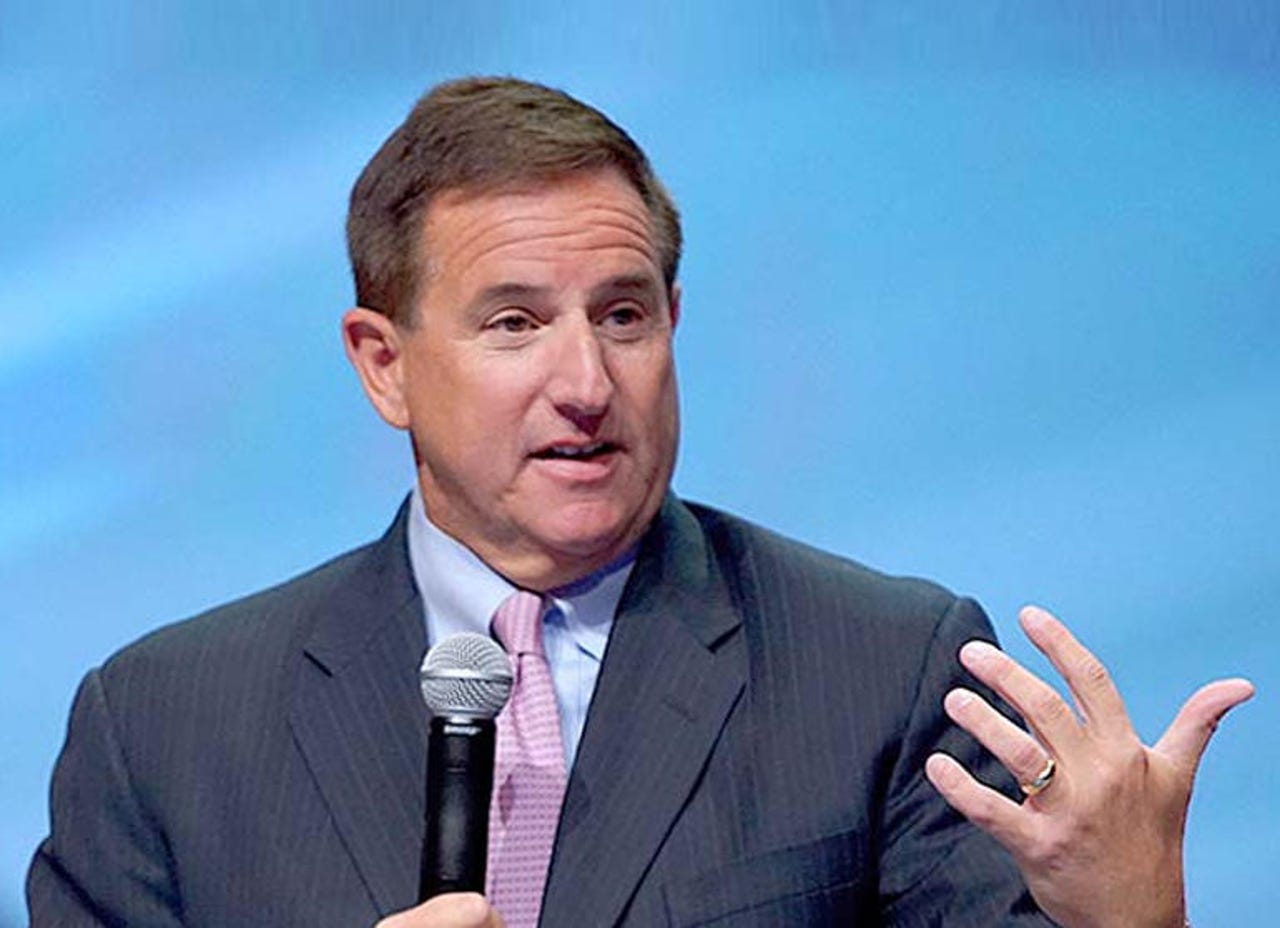Oracle's Mark Hurd: Expect to see a 'dramatic flip' in IT spending


Oracle CEO Mark Hurd delivered a keynote address at Oracle OpenWorld on Sept. 19, 2016.
It was almost a decade ago that Oracle co-founder Larry Ellison called cloud computing "complete gibberish," but a look at expectations for the next decade explains why Oracle is going all in on a comprehensive cloud strategy.
At Oracle OpenWorld on Monday, Oracle CEO Mark Hurd predicted that by 2025 80 percent of IT budgets will be spent on cloud, not traditional IT, and that spending on cloud will continue to accelerate. By that point, corporate data centers will drop by 80 percent, Hurd continued, with only legacy apps that must run in-house remaining.
And as workloads move to the cloud, there will be a "dramatic flip" in IT budgets. Currently, 80 percent of corporate IT spending is devoted to simply keeping existing systems running, with very little room for innovation. By 2025, if the cloud shift happens as he predicts, Hurd thinks that 80 percent of IT budgets will be spent on innovation and 20 percent on maintenance. The ability to innovate without spending more, of course, is what corporate leaders want.
Already, Hurd noted, overall IT spending is flat but within that, cloud investments are growing 44 percent.
According to a recent report from 451 Research, 41 percent of enterprise workloads currently run in the cloud. By mid-2018, around 60 percent should run on the cloud, the group forecast.
All of this explains Oracle's current investments, Hurd explained: The company has invested $5.3 billion in R&D, has more than 10,000 cloud engineers, and now has more than 19 data centers around the globe. He likened the initial investment in cloud data centers to an investment in a new hotel: "This is a tough market," he said. "You have to build everything in the hotel before you can rent one room -- it's the same thing in a data center."